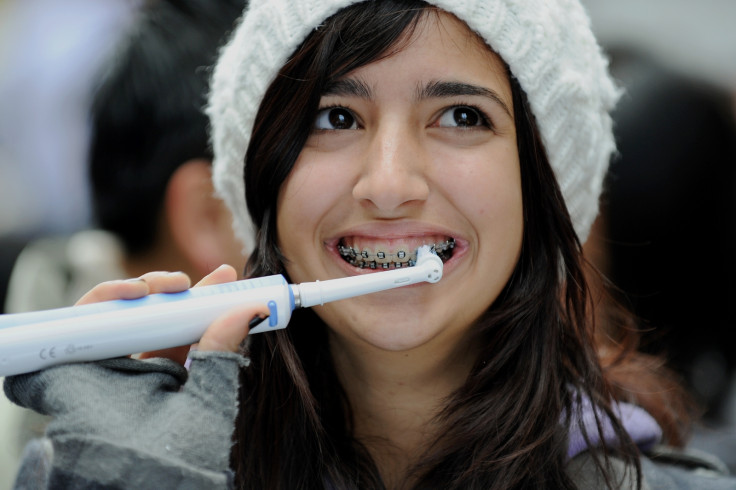Toothbrushes could test DNA for cancer and Alzheimer's, Oxford Nanopore says

Your toothbrush could soon warn you about the onset of diseases such as cancer and Alzheimer's, according to technologists.
Tiny microchips embedded in ordinary household appliances like a toothbrush or fridge could analyse your DNA for genetic markers that are known to indicate the disease, the technology publication Wired, said.
Known as nanopore sequencers, the tiny computer chip can decode DNA into a digital format, which can then be inspected to find the tell-tale signs of any diseases.
The sequencers are becoming smaller and can be embedded in any product or device that it comes into contact with human DNA, the Times reported.
Clive Brown, chief technology officer at Oxford Nanopore, a company that makes a palm-sized nanopore detector, told the Wired Health medical technology conference that the sequencers could become "ubiquitous sensing apparatus" capable of monitoring our health.
Another healthcare revolution
The miniaturisation of DNA sequencers, which are typically large machines found in laboratories and run by experienced technicians, is a watershed in science and could lead to a revolution in health care.
Nanopore sequencers have already been used to test for Ebola in West Africa and could potentially be used to check animals on farms and in food production lines, he said.
However, Brown, said that "there were "lots of logistical things that need to be figured out", such as security against hacking attacks, before the devices were ready to be used by the public, the Times said.
"The same security concerns apply to your Fitbit, or location services on your mobile phone. These things already out there," Brown said.
The nanopore sequencer works by passing DNA through a hole on the chip approximately 1.5 nanometers across – 80,000 times thinner than a human hair – through which an electrical current is run, according to the Times.
The electrical current then measures the flow of atoms through the tiny hole and generates an electrical signal which is turned into a digital record.
A number of companies have begun to offer DNA sequencing services to consumers recently, with a test costing as little as £100.
© Copyright IBTimes 2024. All rights reserved.






